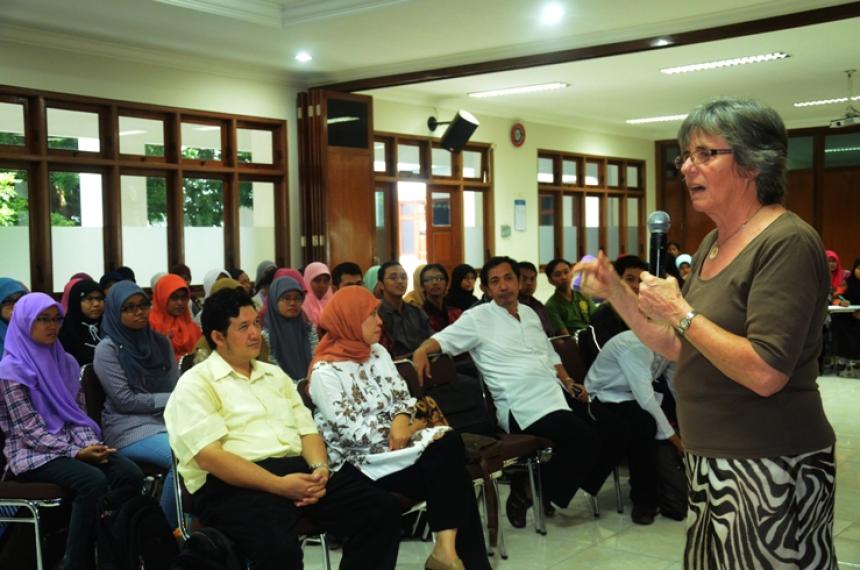ANNIE MAKKINK: MEANINGFUL MATH AND MATH IN EVERYDAY LIFE

Math is a beautiful and educational subject because it is a powerful language for learning to think. From a young age, children are familiar with math. Math is not just numbers, symbols, not just memorization, but meaningful math.
In daily life, people have to understand mathematics such as calculating, interpreting, etc. For work and further studies, people have been introduced to it since school. One can also become a mathematician. This was conveyed by Mrs. Annie Makkink from the Netherlands at a public lecture for students of the Mathematics Education Department, Monday, 4/3 at FMIPA UNY.
Annie gave an example of people who sell pots in the market. There are many mathematical meanings in it. Starting from the price of Rp 10,000 / 3 pieces, or can count the number of pans sold by grouping, etc.
A mathematician, especially from a Western country, who does not know the prices in Indonesia, rarely leaves campus, has never gone to the market, seriously, if asked the price of a pot that says Rp 10,000 / 3 pieces, then he has a calculation that is Rp 10,000 divided by 3 and the result is 3333.333. But if in the market one pot can be priced at Rp 3,500, - or 4,500, -. This indicates that math calculations and math in everyday life are indeed different.
“For someone who owns a gold shop, the owner does not need to memorize weight measurements such as how many decagrams are in 1 kilogram, how many centigrams are in 1 centigram. This is because gold shops rarely use kilograms, but mostly grams,” she explains.
Annie gives another example, namely the meaning of the number on a hotel door keychain numbered 1012. The number does not necessarily indicate the number of rooms in the hotel. But the number means floor 10 room 12. Likewise other numbers such as numbers on vehicle license plates, cellphone numbers, etc. (witono)
Copyright © 2026,



